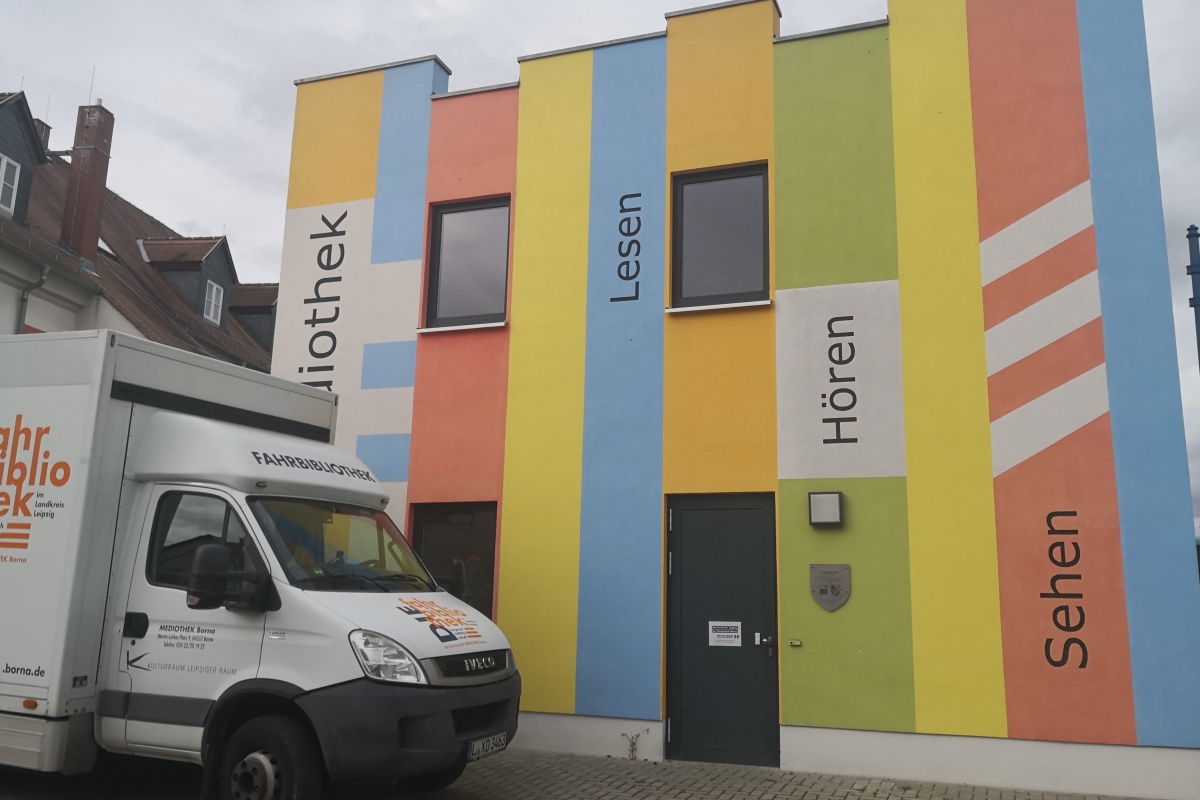We all know libraries as a quiet place where we can concentrate and work, as a starting point for journeys into distant fantasy worlds. For arche noVa, libraries are also an ideal starting point for education for sustainable development (ESD), because as a public institution they stand for equal opportunities and lifelong learning. Thus, they are predestined to take over a role model for ESD and to promote sustainable development in their community.
Sustainable media selection and lending
Libraries regularly make decisions about what media to acquire, how to prepare it, how to present it, and ultimately how to dispose of it. ESD can become the guardrail for these decisions:
• Do we have media that informs on ESD topics, provides options for action, or inspires us to think outside the box?
• Can we label these media and perhaps present them separately?
• What media formats are particularly durable? (Hardcover books tend to be more durable than paperbacks, etc.).
• Are there media for which foiling can be dispensed with, or is there foil made from renewable raw materials?
• Can we give away discarded media or sell them for a symbolic price?
It turned out that libraries are of course sustainable in themselves - because you can borrow things and get access to knowledge. All the institutions had already implemented sustainability in various aspects, but everywhere there was also a need for development and interest in new ideas, which we hopefully helped to jump-start through our efforts.
Best Practice: Book Exchange Box in Zittau
The Christian Weise Library in Zittau is a pioneer in sustainability. During the Corona lockdown, the staff used the time to sort out books. These were made available to be taken away free of charge. Over time, a swap box was created in which library visitors now also make books available for others. The Weißwasser municipal library has also set out on the road to ESD and put together a media box on sustainability topics for the classroom. A so-called "library of things" is also being planned there.
Properly plan transportation and event
At the consultation meetings in the libraries, both logistics and event management came up. Among other things, they dealt with the transport of media and the routes to and from the library:
• What do we use to transport media?
• How do we package media for transport?
• Can we lend reusable tote bags when needed?
• Do we provide adequate bicycle racks?
• Where can we post public transportation schedules?
ESD can also be integrated well when planning and implementing events: From the content of the event to the accessibility of the venue to the selection criteria for catering, the range of decisions that can be linked to ESD runs the gamut.
Pulling together with the municipalities
As municipal institutions, libraries are bound by the decisions of the local government; this applies in particular to questions of procurement and premises. In order to nevertheless design these aspects according to sustainability principles, it is necessary to engage with the municipality and make courageous decisions.
For example, centrally located, energy-efficient premises that are easy to reach by bus, train, bike and on foot are desirable in terms of ESD.
Looked at the other way around, libraries can set an example with their commitment in the community and promote sustainability in a way that is effective for the public. This is done, for example, by:
• Using sustainable office materials
• Separating waste in the publicly accessible premises
• Installing drinking water fountains
• Incentives for employees to use sustainable forms of mobility
• Visualization of all ESD activities on posters, on the website or in the municipal gazette
arche noVa draws a positive balance
arche noVa draws a positive balance after twelve months of ESD project at Saxon libraries. At all events there was a lively exchange about how to make library work more sustainable in its processes and how to develop good ESD educational offers. From Weißwaser to Annaberg-Buchholz, our three-hour consultations and four-hour regional workshops took place with a total of 48 employees of municipal libraries. The appointments as well as the production of the brochure were supported by the Saxon State Ministry of Education and Cultural Affairs (SMK) within the framework of the implementation of the Saxon State Strategy Education for Sustainable Development (ESD) and financed by tax funds on the basis of the budget passed by the Saxon State Parliament. In addition, there was close cooperation with the Saxon State Office for Libraries.
All those who feel motivated to act and want to take the first steps on the way to more sustainability right now can download the brochure "Introduction of Education for Sustainable Development (ESD) in the Public Library System in Saxony" here: „Einführung von Bildung für nachhaltige Entwicklung (BNE) im öffentlichen Bibliothekswesen in Sachsen“













